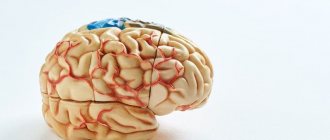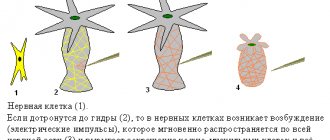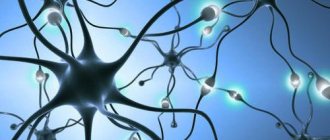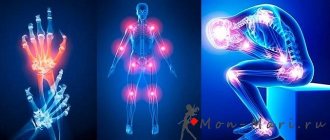It has been proven that even small doses of alcohol lead to the death of neurons, but in the absence of regular ethanol intake, brain functions are not impaired as a result of the formation of new axonal connections. Alcohol abuse has many consequences, including persistent degradation of nerve cells in the brain. In stages 3-4 of alcoholism, the changes that have occurred in neurons cannot be completely restored, but medicine has in its arsenal drugs that can increase the level of brain activity and prevent the development of complications.
[toc]
Effect of alcohol on the brain
Once in the body, alcohol undergoes metabolic reactions through an enzyme produced by liver hepatocytes, alcohol dehydrogenase, resulting in the formation of a highly toxic substance - acetaldehyde. It is this metabolic product that has a detrimental effect on the cells of internal organs, primarily the brain. Its effect goes through several stages, which reflect a violation of cognitive, mental activity and organic damage to the nervous tissue.
Euphoria stage
Part of the ethanol that has not undergone the metabolic reaction of dehydrogenation is absorbed into the bloodstream through vascular endothelial cells, entering the brain tissue. The resulting feeling of euphoria is associated with the ability of ethyl alcohol to stimulate the activity of gamma-aminobutyric acid (GABA).
This organic compound belongs to the inhibitory neurotransmitter of the central nervous system, the functioning of which is associated with the interaction of specialized GABAergic receptors. The mediator is able to block conducted impulses, which is also observed during alcohol intoxication. At this stage of the effect of ethanol on the brain, euphoria is observed, which is expressed by:
- a feeling of calm;
- elevated mood;
- muscle relaxation;
- moderate clouding of consciousness in the form of somnolence - a disorder accompanied by a certain degree of apathy, an increased threshold of sensitivity to external stimuli.
The euphoria stage is also due to the vasodilatory activity of ethanol, which promotes vasodilation and the release of many mediators into the blood, including endorphins and serotonin, which affect the emotional state of a person.
This period lasts about half an hour, after which the next stage follows.
Stage of poisoning
Further circulation of ethyl alcohol in the body leads to damage to the membranes of red blood cells, which reduces their ability to oxygenate tissues; in some cases, sludge develops - a pathology in which the plasticity of red blood cells is disrupted, making it more difficult for them to move through small capillaries and carry out gas exchange with tissues .
In addition, alcohol intoxication leads to the development of respiratory disorders. These pathological processes cause the occurrence of hypoxia, to which the brain is most sensitive. Oxygen deficiency leads to disruption of the functioning of neurons, a slowdown in the transmission of nerve impulses, and also leads to the death of cells, which are subsequently eliminated from the body in the urine.
The toxic effect of ethyl alcohol on the cells of the central nervous system causes changes in the psyche and neurological disorders in patients suffering from addiction. During intoxication, delirium may develop, i.e. delusional states, the manifestation of which most often are true hallucinations with scene-like content, which can cause aggressive behavior of a drunk person.
Damage, hypoxia and death of cerebellar cells cause impaired coordination and orientation in space.
Vasodilation, hypoxia and circulatory disorders can result from cerebral hemorrhage.
A critical dose of alcohol, when exposed to the medulla oblongata, where the respiratory center is located, as well as the central nervous system cortex, causes coma.
Degradation stage
The toxic effects of ethanol in the form of damage to neurons, their hypoxia, and hemorrhages lead to degradation of the nervous tissue of the brain. In this case, the organ gradually decreases in size, its function is significantly reduced, which leads to cognitive, intellectual, and thinking disorders. The mental status is characterized by apathy, lethargy, and sometimes aggressiveness; a change in personality occurs.
Histological examination of the brain tissue of deceased persons who suffered from alcohol addiction reveals degradation of nerve cells, thinning and demyelization of their membrane membranes, shortening of axons, and damage to neuronal synapses.
Impaired brain function due to alcohol intoxication leads to the development of various encephalopathies, characterized by changes in the psyche, memory deterioration, up to fixation amnesia, in which a person cannot reproduce the information just received, and neurological manifestations.
Against the background of severe poisoning, the patient may develop a convulsive attack with tonic muscle spasm, as well as death due to irreversible disorders of brain activity.
Restorative nutrition after stroke
Due to poor nutrition, the brain can easily experience severe discomfort due to excessive intake of sugar and cholesterol into the blood. Penetrating into the body due to unforeseen intake of fatty, salty and non-cooking foods.
Alcohol and smoking, in general, are considered the first opponents of harmful effects on the human brain. Even at the age of 15, one cannot say that nicotine and alcohol will cause less harm to a young body than in old age. This is not true; in this case, there is a risk of suffering consequences from a brain stroke before the age of 25.
Therefore, it will be useful for every person to eat the following foods:
- Eat fatty meat and dairy products in moderation. If necessary, replace high-calorie meat products with lean ones, and cheese or cottage cheese with minimal fat content.
- Daily consumption of fresh herbs, fruits and vegetables.
- Sweets should be consumed in moderation.
- Do not overexert yourself with strong drinks and cigarettes, which interfere with the flow of oxygen to the brain.
- If you really want to drink, drink only natural juices, nectars or purified water.
- For bread, choose products made from second or third grade flour.
This type of nutrition is especially important for patients after a brain accident. When the victim's recovery will be faster and more productive. Healthy people are also advised to know about this, since the possibility of poor blood circulation can also happen to them at any time.
The effect of alcoholism on the nervous system and behavior
Drinking alcohol leads to euphoria, which is manifested by increased mood for no good reason, openness in communication, a feeling of satisfaction, muscle relaxation, the person becomes talkative and curious. Subsequently, this stage is replaced by opposite phenomena in the form of aggressive behavior, anger, resentment, decreased self-criticism, impaired coordination of movements and orientation in space.
All these signs arise as a result of the effect of ethyl alcohol and its metabolites on the nervous tissue, which have a destructive and degenerative effect on neurons.
The development of delirium and delusional hallucinations is possible. In this case, a person most often experiences scary and aggressive scene-like visions, at such a moment the patient becomes dangerous to others, therefore this pathological condition is an indication for seeking medical help. The pathogenesis of mental disorders as a result of alcohol intoxication has not been fully studied.
Alcohol consumption leads to memory impairment, which can manifest itself as retrograde and fixation amnesia.
The pathology is observed both during the acute phase of intoxication and is a sign of alcoholism, and during the development of alcoholic encephalopathy. The most unfavorable is fixation amnesia. In this case, the person loses the ability to perform professional activities.
Restoring brain activity in alcoholics
Therapy for degenerative processes of brain activity is aimed at eliminating the links in pathogenesis, relieving symptoms, detoxifying the body and eliminating cell damage. A patient suffering from alcoholism should consult a narcologist, as well as a neurologist, for diagnosis and a treatment plan.
- The main condition for the successful restoration of brain function is a complete cessation of drinking alcohol. This is necessary to eliminate the pathogenetic link of the disease. Drinking alcohol during drug therapy will not only not lead to the desired effect, but will also cause the development of many complications, which will aggravate the patient’s condition.
- Diet therapy plays a big role in the restoration of nervous tissue. It is necessary to establish a diet; meals should be frequent and small. The composition of the dishes should include all groups of vitamins, especially thiamine (B1), which helps normalize nerve cells, micro- and macroelements, as well as a sufficient amount of proteins, fats and carbohydrates.
- The drugs included in the pharmacological group of nootropics restore damage to neuron membranes and accelerate impulse exchange between cells.
- Infusion therapy with vitamins and glucose can treat intoxication syndrome.
- Relief of headaches is possible with the help of non-steroidal anti-inflammatory drugs (Diclofenac, Ibuprofen). Contraindicated in patients with gastric and duodenal ulcers, as well as erosive diseases of the large and small intestines.
- Angioprotectors help protect the structure of blood vessels and prevent the development of hemorrhage and reduce tissue hypoxia.
- Rehabilitation in a psychiatric department is indicated for patients with aggressive behavior that threatens the lives of others and their own, or at their own request.
Thus, brain recovery after quitting alcohol is quite possible.
Neuron: structure and functions
The neuron is the main structural element of the nervous system, which evolved from neurofector cells. The function of nerve cells is to respond to stimuli by contracting. These are cells that are capable of transmitting information using electrical impulses, chemical and mechanical means.
Anatomically, neurons consist of a body and two types of processes - axons and dendrites. There are often several dendrites, their function is to capture signals from other neurons and create connections between neurons. Axons are designed to transmit the same signal to other nerve cells. On the outside, neurons are covered with a special sheath made of a special protein – myelin. It is prone to self-renewal throughout human life.
Your Narcologist recommends: neurogenesis – new brain cells
Traditionally, it was believed that the reproduction of cells of nervous tissue is impossible, and the number of neurons is determined by the genetic anlagen at the embryonic stage. Later, many studies revealed that brain tissue cells are capable of reproduction. This discovery gave impetus to the development of a new generation of drugs that not only strengthen and restore the structure of cells, but also stimulate their growth and reproduction.
Currently, ongoing development and clinical trials of new methods for stimulating neurogenesis are underway, among which great hopes are placed on the transplantation of stem neurons or stimulation of their endogenous synthesis, and much attention in research is paid to neuroprotective compounds. The use of innovative methods in the future will help in the treatment of diseases leading to the degradation of brain cells, including alcohol etiology.












